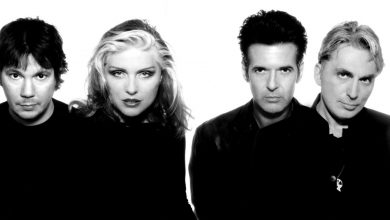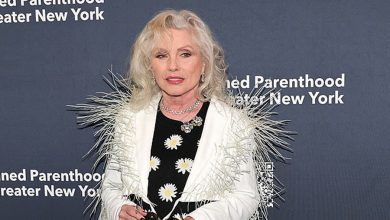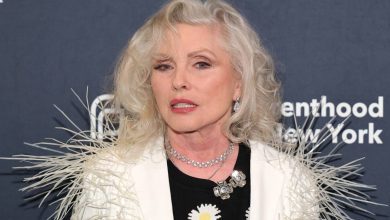Debbie Harry: ‘Music matters. YouTube should pay musicians fairly’
The Blondie singer outlines why she’s joining the crusade to demand better payments for musicians from the video streaming service
theguardian.com – 26th April 2016

As a singer-songwriter with more than 40 years of experience in the music industry, I have witnessed large shifts in the economics of the business. The most extensive of these has taken place in the past decade, with the digital music world continuing to move largely towards streaming. In this era of streaming platforms, I feel compelled to speak out on behalf of a new generation of artists who are not being treated or compensated fairly. In a world in which few people are paying for music, it is imperative for companies that generate enormous revenues, such as YouTube, to support the musicians and artists who have made that platform what it is today.
Artists are being exploited to make a very small percentage of people extremely rich
The official video for Blondie’s Heart of Glass on YouTube has been viewed 49m times. There are over a million other Blondie videos on YouTube, most of them from unofficial accounts, garnering a combined hundreds of millions of views. Yet none of us in Blondie will receive a fair amount of royalties from these millions of plays. In fact, it is estimated by the American Association of Independent Music that YouTube pays only a sixth of what Apple and Spotify pay artists.
While I was fortunate enough to make a good living making music, able to travel around the world performing, I was also fortunate enough to be an artist during the period when people bought albums. But in this digital world, the up-and-coming artists of today are being denied the chance to earn a living, when companies such as YouTube don’t pay them fairly. This is crippling for new artists who depend on their earnings to make new music.
Music fuels YouTube’s success. Music has helped the video site become the No 1 destination for music online. Music has also helped make YouTube’s parent company, Google, which bought it in 2006, become the world’s second largest corporation. Music matters. Artists matter.
Google has the second highest market capitalisation in the world, and its total 2015 revenue was $75bn (£52bn). The total annual revenue of the global music business, in comparison, is less than $15bn. Our large community of hardworking artists is being exploited to make a very small percentage of people extremely rich.
Music streaming: what do songwriters really get from YouTube or Pandora?
Helienne Lindvall
Read more
The most searched item on YouTube is music. But despite music driving so much traffic to the YouTube platform, they do not pay artists fairly. YouTube has enabled a flood of unlicensed content into the marketplace, driving the market price down and using their monopoly-power to pay next to nothing.
Why is this possible? How is this possible? In 1998, the United States Congress passed a bill called the Digital Millennium Copyright Act (DMCA) that, in part, was designed to protect artists from having pirated copies of their works distributed and monetised online. At the time of the bill, and for the first time in history, creative works could be easily copied and distributed throughout the internet without proper payment to the author of those works, and the DMCA sought to protect the creative people whose livelihoods depended on getting paid for their work.
But the DMCA has a loophole.

It is called a “safe harbour provision” and is applicable to “Information Location Tools”. The clause required that if an artist discovered their work on a platform protected by the safe harbour clause, they had to issue an individual take-down notice for every instance it was uploaded.
But this is an impossible task. The search engine owners knew it would be impossible to enforce this clause when the law was drafted. I wouldn’t be able to stop people – and to be sure, many of them are simply fans who mean no harm – from uploading our music every time it happened. But YouTube and Google know better. They are profiting from the law; the people who make the music are not. Google’s original motto was “Don’t be evil.” The [parent] company’s new motto is “Do the right thing.” I am hoping that these are not just words, and that Google will live by its motto and follow Apple’s lead in doing the right thing, as they did when Taylor Swift, Nikki Sixx and others demanded that Apple pay artists fairly.
I am joining artists like Katy Perry, Nikki Sixx and Billy Joel, and I’m asking other artists to join us in asking President Obama, Hillary Clinton, Bernie Sanders, Donald Trump, Ted Cruz, and John Kasich to lobby Congress to change the DMCA. Moreover, we are asking journalists to question these candidates and President Obama on when they’re going to start this lobbying process.
Art and music have helped change and sculpt our culture. As someone who performed at seminal clubs like CBGB, and had a part in shaping the punk music scene, I know first-hand how we can influence the world. Music matters. Musicians matter. We artists have this ability. We only ask that we be compensated fairly.
https://www.theguardian.com/music/musicblog/2016/apr/26/debbie-harry-youtube-royalties



